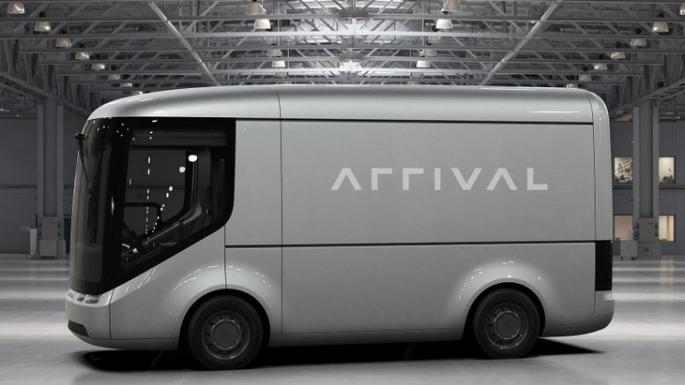Hyundai and Kia buy stake in Denis Sverdlov’s Arrival vans
A former Russian government minister-turned-tech entrepreneur has become a paper multi-billionaire overnight after selling the Korean motor industry a stake in his electric van start-up in Banbury, valuing it at about €3 billion.
Hyundai and Kia, the cross-owned South Korean carmakers, have spent €100 million taking a 3 per cent stake in Arrival, a company that is hoping to make zero-emission delivery vans for the Royal Mail and John Lewis, the retailer.
Arrival was founded and hitherto wholly owned by Denis Sverdlov, 41, who made a fortune in the Russian mobile phone industry and had served as the country’s telecoms minister. He came to Britain six years ago and has been dabbling in automotive technologies.
With Arrival near to going into production, the Korean companies have taken a stake that could lead to it making Hyundai and Kia-branded electric vans.
The deal catapults Arrival to a place among the UK’s select band of unicorns — a term borrowed from the US West Coast for privately owned start-up companies valued at more than $1 billion.
The vans are to be manufactured at a 10,000 sq ft microfactory — about one sixth of the size of a football pitch — in Banbury in Oxfordshire, an area favoured by niche automotive companies and motor-racing teams. The facility, Arrival claims, will be capable of producing 10,000 vans a year.
Mr Sverdlov calls his van a “generation 2 electric vehicle”, those that haven’t emanated from the traditional automotive industry and which in Arrival’s case began as a blank piece of paper in its design studio in Kensington, west London.
Arrival believes its design and production processes will be able to produce an electric van for the equivalent price of a £25,000 diesel Mercedes-Benz Sprinter. Conventional vans from existing auto manufacturers reconfigured with a battery electric powertrain tend to cost £20,000 more than their diesel equivalent.
It says it will be able to produce zero-emission vans with ranges on one charge of more than 200 miles. But it said trialling with companies like Royal Mail and John Lewis and other delivery companies such as UPS and DHL has found that the daily workload of many vans does not amount to much more than 30 miles and so much smaller batteries could be fitted.
Mr Sverdlov believes he is tapping into a 4.4 million van market in the UK which will increasingly come under pressure to decarbonise the largely diesel fleet because of the amount of work they do in built-up areas
Avinash Rugoobur, 40, a former General Motors executive who is Arrival’s chief strategy officer, said: “We are excited to come out of stealth mode with our partnership with Hyundai and Kia [which] will allow us to rapidly design, build and roll out vehicles together.”
